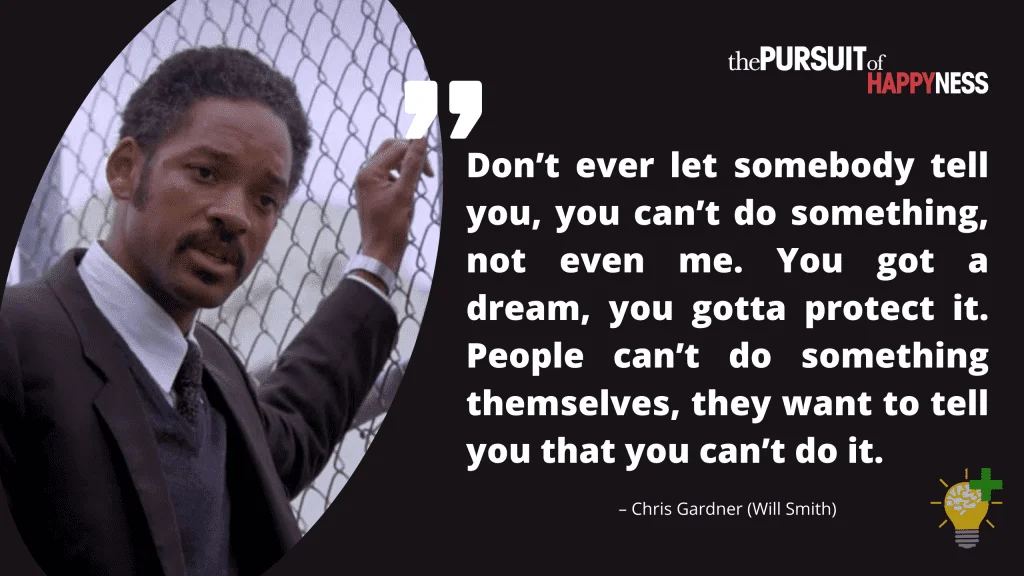Modern living comes with so much rush and busyness; it can be difficult to take time out and be really grateful for your many blessings.
Instead of gratitude and enjoying your moments, you’re probably preoccupied with goals, desires, and aspirations. While these things are great ―they boost your sense of accomplishment and importance ― constantly chasing goals without taking time to reflect can increase anxiety.
Living a balanced life means acknowledging your blessings while striving for more, which is what contentment is all about. And in this article, I’ll show you a few different ways to be content with what you have, even if you think you’re not yet living your best life.
Plus, I’ll share some down-to-earth exercises you can start right now to improve your contentment muscle.
Contentment: What Does It Really Mean?

Here’s how I like to define contentment: it is appreciation and gratitude mixed with acceptance of the way things currently are.
You are content with what you have when you are satisfied with how your life is playing out, so you enjoy inner peace, even when things aren’t perfect.
While some people assume that contentment equals indolence (I’ll get to that in a bit), being content with what you have is the opposite ― it pushes you to strive for more.
However, instead of acting from a place of worry and fear, contentment allows you to act from a place of satisfaction, even though you’re eager for more!
Contentment means no longer focusing on the things you don’t and letting yourself be driven by negative emotions and thoughts, such as envy and unhealthy competition. Being content allows you to thoroughly enjoy your moments while reaching for the things you really want.
What Contentment Is Not
It is not unsurprising for people to think that contentment means apathy or a carefree existence, which are very erroneous misconceptions. If you have a hard time accepting the idea of “living one moment at a time,” you may be among many who’ve got the wrong idea about contentment.
Before I share my practical tips for being content, here are some things contentment is not.
1. Being Content Doesn’t Mean the Absence of Desires
Being satisfied with where you are doesn’t mean you should give up on new experiences. An absence of desire is a misnomer; no human can live without desire.
Therefore, don’t settle! Instead, keep reaching for greater heights while not losing sight of what you already have.
2. Contentment Is Not the Same as Being Stagnant
If you’re stuck in a rot, do what you can to get out fast! Don’t be satisfied or “patient” with a mediocre life.
For example, be grateful that you have a job, even if it sucks; that’s being content with what you have. However, don’t stop hunting for a better job. Improve yourself, go back to school if you must, but don’t stop growing. That’s what it means to take action from a place of satisfaction while being eager for more.
3. Being Content Is Different From Being Lazy
Contentment should never be an excuse for not working hard. Don’t tell yourself that you’re satisfied with how things are just to convince yourself not to do better.
To be highly successful, you must cultivate certain crucial habits, including hard work. By the way, it is worth mentioning that successful people are satisfied and always reaching for more.
6 Ways to Be Content With What You Have
Now that we’re clear on what contentment is and is not, let’s see six ways to be satisfied and happy with your current situation, even if you don’t have everything you want.
Contentment is not mere theory, so pay particular attention to the suggested exercises and be sure to practice them.
1. Don’t Compare Yourself to Anyone

Unhealthy competition and comparing yourself to others breed envy and dissatisfaction. We all have something we have accomplished, no matter how small. But you’ll have difficulty appreciating what you have if you constantly compare your accomplishments with those of others.
Undoubtedly, staying away from unhealthy and unnecessary comparisons can be tricky in the internet age. And while we can’t deny the important benefits of using social media, you must cut back the time you spend mindlessly scrolling through social media, especially highly-visual social media (HVSM) platforms, such as Instagram and Snapchat.
Research shows a link between poor self-image and frequent use of HVSM platforms, especially among young people.
You easily get carried away by the “perfect body” and fanciful, exotic things you see online and become dissatisfied with your less-than-perfect situation. But this is unfair to yourself because you are discounting your entire existence merely on another person’s lifestyle.
I love how Bill Gate puts it: “Don’t compare yourself with anyone in this world. If you do so, you are insulting yourself.”
Suggested exercise:
- Each time you catch yourself feeling less than someone else, pause and tell yourself, “I am on my unique path. I don’t have to be, do, or have what someone else has.”
- Next, use shifting affirmations to direct your focus to something that feels better.
2. Pursue Goals That Align With Your Values

Sometimes, we don’t really appreciate our accomplishments, even after spending a great deal of time and effort accomplishing them.
This happens when we chase dreams that aren’t truly ours.
Here’s what that means.
No matter how lofty your goals are, you’ll never feel satisfied pursuing and achieving them if you don’t truly believe in them.
In other words, you must first identify your values before going after any goal. Your core values define who you are, and aligning your dreams or goals with what matters most to you is the best way to live more intentionally and happily.
For example, if honesty is one of your core values (as it should be!), you’ll never be happy cheating to get into a doctorate program. Others may congratulate you on your success, but the accomplishment means little to you deep down.
On the other hand, if you align your goals with your values, you’ll understand that getting what you want is not a do-or-die thing. You’ll know that it is okay to be content with what you have while striving to become better.
Suggested exercise:
- What are your values? Take some time to identify your values.
- Next, evaluate your goals. Are you going after what you truly want, or are you chasing someone else’s dream just to gain approval?
3. Make a “Things That Went Well” List Before You Sleep
Like most people, you probably have heard this classic advice: practice gratitude!
Many people have a habit of saying the grace during mealtime and muttering a short “thank you” prayer before retiring at night. However, gratitude goes beyond mere lip service or saying “thank you.”
You must be deeply grateful for the people, things, and situations in your life, even if you prefer something better. Gratitude is intricately woven into contentment, so there’s simply no way to be content with what you have without being truly grateful.
Making a list of things that went well during the day before you hit the sack is one good way to practice gratitude. Surely, you can find a few things to write, even on so-called bad days.
Suggested exercise:
- Every night, before you call it a day, write down at least three things that went well that day. The more items you can pen down, the better you’ll feel before retiring for the day.
- When you’re done writing, take a few moments to read your list and reflect on each item. This increases your gratitude and gives you a good vibe before falling asleep.
4. Live in the Moment

One of the most difficult things for most people is to live in the moment.
Kids don’t have trouble living moment by moment, but most grownups tend to constantly fear what the future holds or worry that something in their past will somehow spoil everything in the present.
Although our daily experiences demonstrate to us, time and again, that most of the things we worry about don’t actually happen, we still spend a significant amount of time living in anxiety.
Besides messing up our vibes, worry and fear cloud our minds, preventing us from appreciating what we already have.
Suggested exercise:
- Spend about 5 to 15 minutes doing only one task at a time. Avoid multitasking for this period. Make it a point to have several of these 5 to 15-minute segments throughout the day where you focus on one thing at a time, and you’ll get used to being mindful of your moments before long.
- Create time to meditate or practice deep breathing every day. A few minutes of meditation or deep breathing can ground you in the present, reducing the worry of the past or fear of the future.
5. Appreciate the Simple Things That Don’t Cost Money

Some of the best things in life don’t cost a dime, yet it’s easy to take them for granted. While we are busy setting and smashing goals, it is important to take time out and be thankful for the simple things that make our existence meaningful.
I mean, you simply can’t put a price on the cute laughter of a child or a loving conversation with your significant other. No amount of money can buy a walk in nature with the soft, warm breeze caressing your skin.
Yet, how often do we lose ourselves in the feeling of appreciation for these simple pleasures of life?
Suggested exercise:
- Try to slow down and observe your surroundings as often as possible. Notice the simple things that stand out to you (such as the weather, the beach, the air you breathe, birds chirping) and be thankful for them.
- Spend quality time with the closest people in your life ― those you’re likely to take for granted ― at least once a month or as often as possible. Think of how difficult your life would be without your support network. Now, appreciate the important role your family and friends play in your life.
6. Resist the Urge to Acquire Things You Don’t Need
Many of us are slaves to consumerism, spending money on whatever tickles our fancy. However, buying more stuff doesn’t necessarily make us truly happy because we don’t really need them in most cases.
Don’t take this the wrong way, though. Being content with what you have doesn’t mean being close-fisted to yourself or others. If anything, contentment involves being compassionate to yourself and others around you.
However, buying things you don’t need clearly indicates not being satisfied with what you already have, even if there’s nothing wrong with what you have.
Suggested exercise:
- Ensure to make a list before you go shopping. This gives you time to really think about the things you need.
- Whenever you get the urge to buy something, pause and ask yourself if you need it. If you already have something similar, ask yourself why you are not content with it and why it is necessary to get the new stuff.
- Sleep on the desire to buy new stuff for a few days, especially if you already have something similar. It may not be time to acquire the new stuff if the desire dissipates after a few days.
- If you must buy something you already have, consider practicing generosity by giving out your old stuff.
Final Thoughts
It is okay to step out of your comfort zone and chase your dreams. However, don’t wait until you have your life all figured out to be content with what you have.
Remember, cultivate gratitude and accept where you are; that’s the secret to enjoying your moments while growing in meaningful ways and finding happiness.




